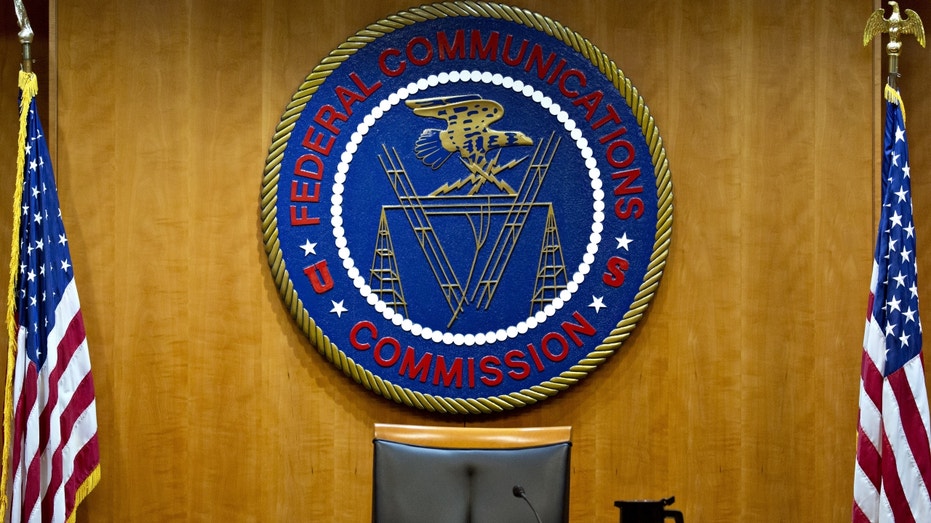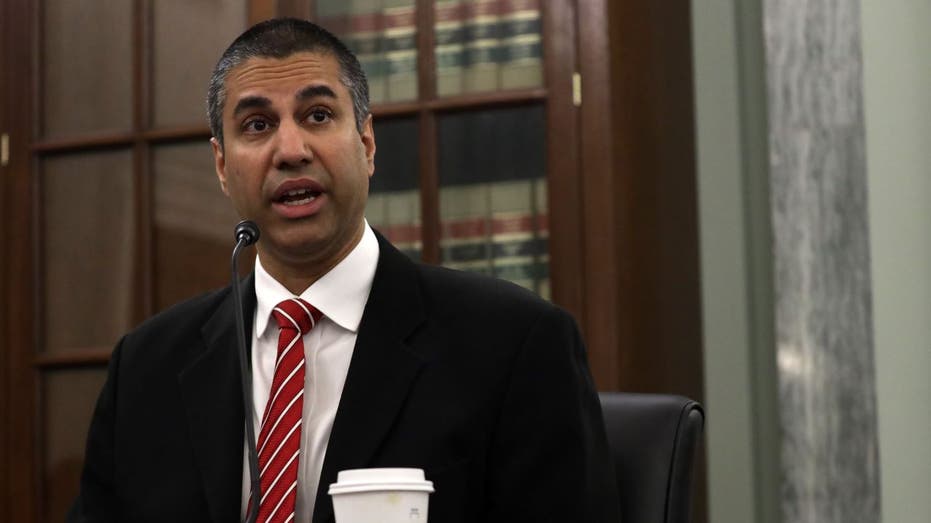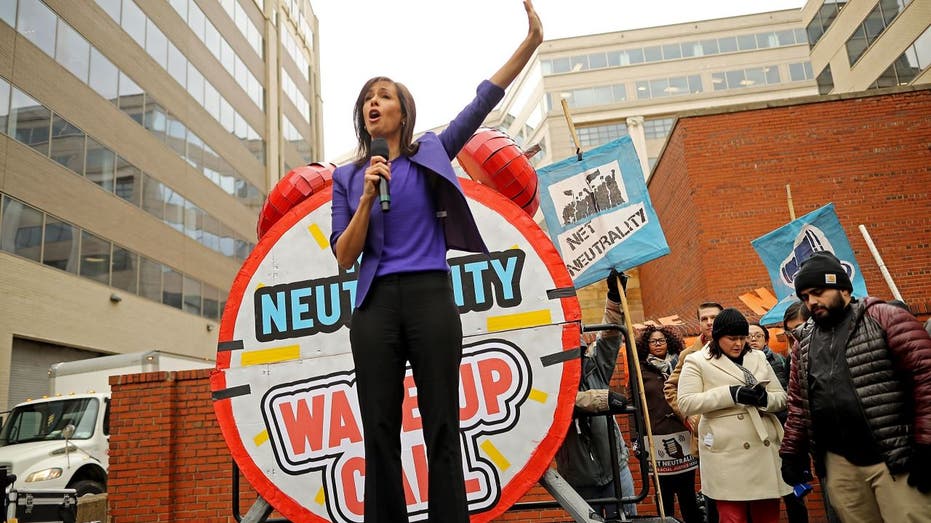FCC reinstating net neutrality could slow internet gains: report
Democrat commissioners at FCC plan to vote on rule reinstating net neutrality regulations this week
Unending avalanche of new regulations is killing economy: Forbes
"Kudlow" panelists Steve Forbes and Sandra Smith discuss preserving the U.S. dollar.
The Federal Communications Commission (FCC) is preparing to vote Thursday on reinstating net neutrality regulations for the internet, which a new report warns could cause a slowdown in the pace of internet speed increases and price improvements seen in the years since net neutrality's repeal.
The FCC, which currently has a majority of Democrat appointees under the Biden administration, is planning to bring back net neutrality rules that allow the agency to regulate broadband internet access as a telecommunications service. That would return the FCC's framework for regulating the internet to what the Obama administration put in place in 2015, which was later rolled back by the Trump administration in 2017 under a framework that classified the internet as an information service.
A Committee to Unleash Prosperity report notes the gains in internet speed and cost decreases that occurred in the wake of the Trump-era deregulation as well as the increased investment by internet service providers.
"If the Biden administration can look at the experience of broadband in the last seven years and declare it a bad thing, something that needs to be reversed, there's really no regulation that they would ever dislike and no deregulation that they would ever like, because this is about the most stunning success possible, and yet they're going to reverse it," Phil Kerpen, president of American Commitment at the Committee to Unleash Prosperity, told FOX Business.
FORMER FCC HEAD AJIT PAI BLASTS NET NEUTRALITY VOTE AS 'COMPLETE WASTE OF TIME'

Democrat commissioners on the FCC are planning to vote on a rule reinstating net neutrality rules this week. (Andrew Harrer / Bloomberg / File / Getty Images)
The report found that median internet download speeds for wired internet connections increased by a factor of 5.8 between 2017 and 2023, while wireless speeds increased by a factor of 8.7.
Although the report acknowledges that download speeds would have improved over time even under the net neutrality regulatory framework, the U.S. rose in speedtest.net's average national download speed rankings from 45th in the world in 2017 to 16th in 2022, while the median speed ranking for the U.S. improved from 22nd to 15th between 2022 and 2023.
It also analyzed price changes for wired broadband and wireless internet, which declined by about 15% and 28%, respectively, from 2016 to 2022. For comparison, from 2010, when the Obama administration first proposed regulating the internet as a utility, to 2016, wired broadband prices declined 9% and wireless declined 22%.
NEW FCC RULES REQUIRE ‘NUTRITION LABELS’ FOR HIGH-SPEED INTERNET PLANS

Ajit Pai served as FCC chair during the 2017 rollback of the Obama-era net neutrality rules. (Alex Wong / Bloomberg / File / Getty Images)
The report noted that those positive results ran counter to the narrative advanced by net neutrality's proponents as the Trump-era FCC moved to undo that regulation.
"The predictions that were made when the deregulation was proposed in the beginning of the Trump administration where [that] this was going to be some kind of an apocalypse and the 'end of the internet as we know it,' things were going to load one word at a time," Kerpen said.
"We don't have to hypothesize or guess about what will happen because we've run the experiment now the last seven years, and if it was the end of the internet as we knew it, it was only because it got so much faster and so much cheaper – basically the opposite of everything that they said would happen," he added.
FCC COMMISSIONER SAYS TIKTOK A 'CLEAR AND PRESENT DANGER' TO US NATIONAL SECURITY

The FCC's Jessica Rosenworcel addresses protesters outside the FCC building to rally against the end of net neutrality rules, Dec. 14, 2017, in Washington, D.C. (Chip Somodevilla / Getty Images)
Kerpen also took issue with the FCC's assertion in advancing its reinstatement of net neutrality rules that any disincentives for private investment by internet companies caused by the return of that regulatory framework will be offset by a $65 billion subsidy program from the bipartisan Infrastructure Investment and Jobs Act.
"This is just kind of an insane way to think about things. I mean if you're going to subsidize something with taxpayer money, you want to get the most for that money that you possibly can," he said. "You want the incentives to be strong for private money to come in as well."
GET FOX BUSINESS ON THE GO BY CLICKING HERE
"The investment effect will certainly be negative, and I think that's a big part of why we saw what we did," Kerpen added. "When you get deregulation and incentives for a strong, competitive market, you get investments in higher speeds. I don't think we would've seen the [five-times] jump in wired speeds and [eight-times] jump in wireless speeds if we hadn't had the deregulation."

